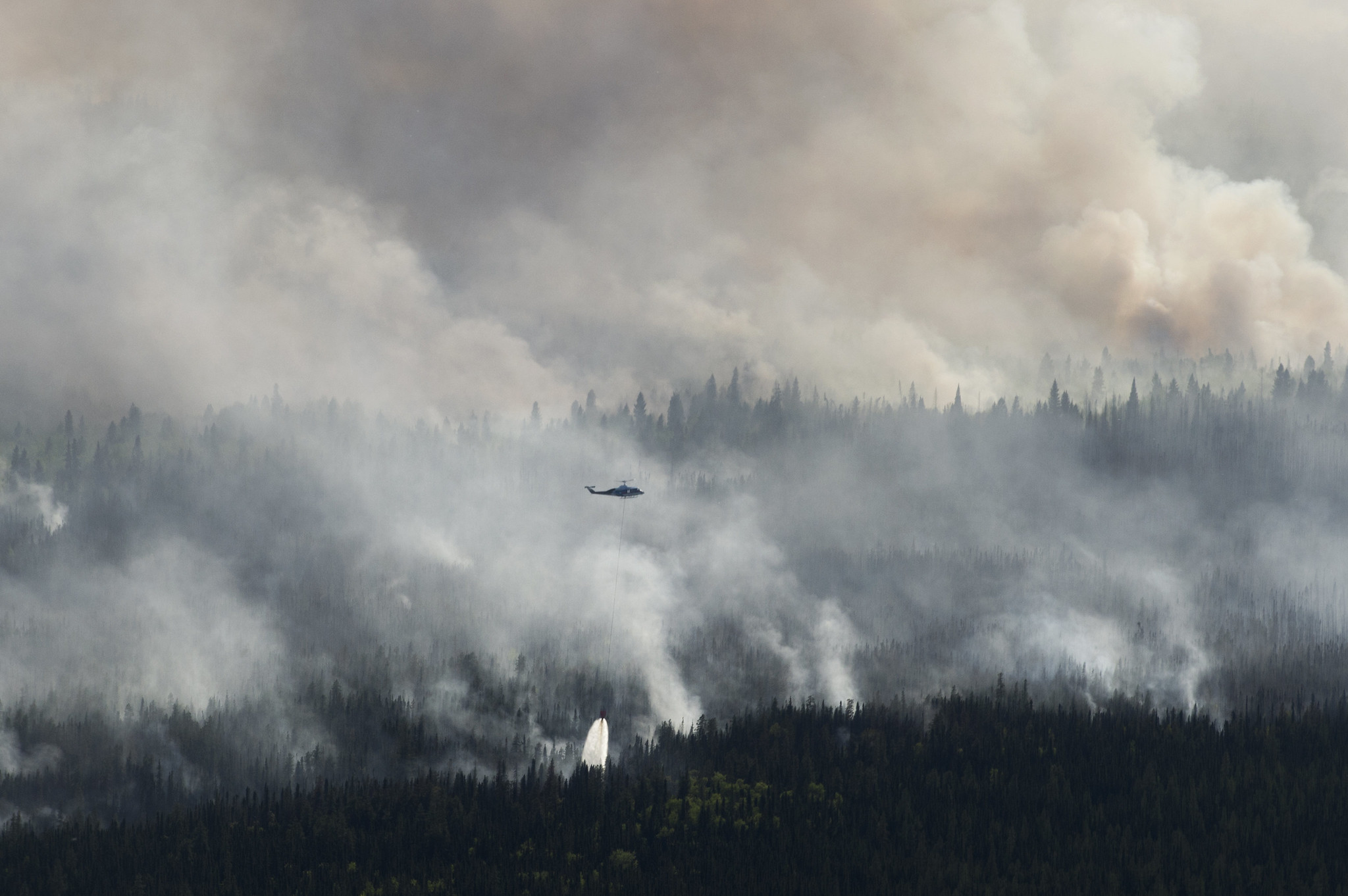Remember the anger in Alberta in 2016 when some observers connected the dots between the fire that spring in Fort McMurray and the phenomenon known as global warming?
Such statements were denounced as outrageous. Also insensitive — and, without doubt, a few of the comments on social media were. But hoping to avoid a discussion of the serious issue the fire made obvious, Alberta climate-change deniers, fossil fuel industry advocates, and conservative supporters looking to undermine the NDP government of the day adopted the same strategy as the National Rifle Association does after a mass shooting: Now, they said, is not the time for politics.
It mostly worked. Folks who saw the connections were inclined not to say so publicly — out of genuine sympathy with the plight of fire victims who, however they made their livings in Fort McMurray, were not personally responsible for the conditions that made the fire so dangerous, and out of fear of the ugly reaction from the internet mob.
Scientists may have come to the conclusion that the wildfires in Northern Alberta were “climate change in action,” but anyone who pointed to the irony of a climate-change-driven disaster in a region and province grown rich on the oilsands was going to take a lot of heat.
That was 2016.
Now it is 2020 and about 150 fires covering territory the size of the U.S. states of Vermont and New Hampshire combined are burning through their way Australia — with no end to the catastrophe seen for months. People everywhere are no longer so shy about pointing out the obvious.
Defenders of Alberta’s powerful fossil fuel industry can’t expect the tactics of 2016 ever to work as well again.
Of course, many of the people speaking undiplomatically in the past few days about climate change were Australians waiting on beaches of New South Wales and Victoria states like British soldiers at Dunkirk for the Royal Australian Navy to carry them away from the climate apocalypse on their heels.
The man in burned-over Cobargo, New South Wales, who famously told Australia’s fossil-fuel-boosting prime minister Scott Morrison that “you’re not welcome, you fuckwit,” probably spoke for a lot of folks, not all of them Australians.
Prime Minister Morrison is a man not unlike Alberta Premier Jason Kenney — a religious and market fundamentalist determined to defend the maximum profitability of country’s fossil fuel industry and prepared to downplay climate change, if not deny it outright, to get what he wants. He even seems to have his own Australian version of Alberta’s “energy war room.”
So Kenney probably ought to brace himself for similar reactions as a climate apocalypse starts to seem like the new normal.
Alberta’s not a country of 26 million people occupying an entire continent, so maybe he can hope to keep a larger percentage of the locals on side for longer. But he can’t count on as polite a reception from the rest of Canada, even among conservatives, if the rest of the 2020s are anything like their first few days.
As New York Times economics columnist Paul Krugman observed last week, “not long ago it was all too common to read articles about heat waves, floods and droughts that seemed to go to great lengths to avoid mentioning climate change.”
No more, Krugman observed. “Reporters and editors have finally gotten over that block.” A few of them are even here in Alberta!
The bad news, the Nobel Prize-winning economist pointed out, is that the Republican base in the United States — and it goes without saying their Conservative counterparts in Alberta and Saskatchewan — are still deeply mired in climate-change denial.
The thing is, as Krugman noted, “the dangers of climate change are no longer predictions about the future: We can see the damage now, although it’s only a small taste of the horrors that lie ahead.”
That’s going to change politics here and around the world whether Kenney and company like it or not. There’s very little the Alberta “energy war room” could do about it even if the organization was competently run.
After all, you can put off your date with reality, but you can’t put it off forever.
David Climenhaga, author of the Alberta Diary blog, is a journalist, author, journalism teacher, poet and trade union communicator who has worked in senior writing and editing positions at The Globe and Mail and the Calgary Herald. This post also appears on David Climenhaga’s blog, AlbertaPolitics.ca.




